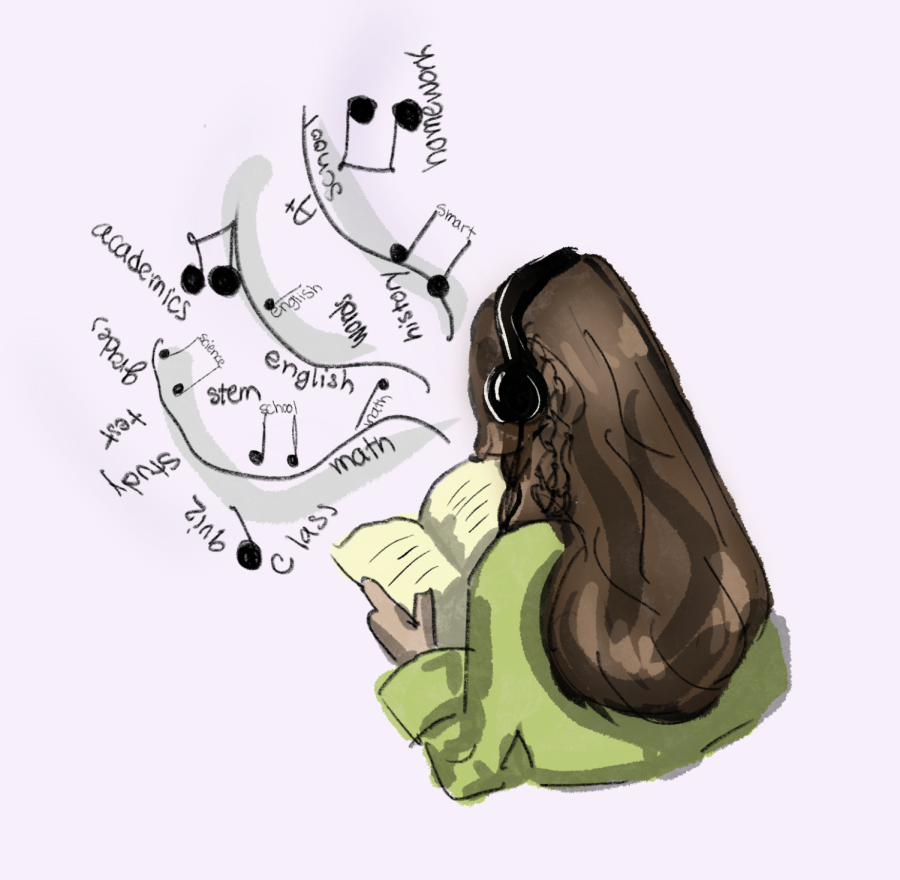OPINION: Listening to music promotes student learning
Students can benefit from listening to music in class by increasing focus and reducing negative emotions.
When sitting in a classroom today, oftentimes students wear wireless earbuds hidden behind their ears or in an ear the teacher cannot see. Yet instead of hiding it, students should be allowed to listen to music in classroom settings to train the brain to be more alert, help the brain stay focused and provide positive emotions for students.
Music can help students’ actively train their brains to stay sharp. According to Crystal Raypole, the human brain processes the information it receives from the world and separates it into smaller segments. Even if the music is solely background noise, the brain’s concentration will be more alert. Music minimizes distractions and keeps the brain from wandering. The brain can only absorb and store a certain amount of information at a time, and listening to music can help students stay on task and focus on the content being taught.
Music can also help to combat stress and anxiety. According to Cheryl Whitten, proven by a Russian study, listening to music can relax the mind and ease stress. Students are frequently experiencing stress due to homework, tests and personal matters. Stress can be harmful to how the brain processes information. However, music has been proven to help ease nerves and calm the mind. With music, the brain is more at ease and can focus on getting tasks done rather than worrying about upcoming subjects and activities. Many students tend to grow frustrated with their work to the point of giving up, but with a calm mind and music flowing to the ears, work can be more bearable.
Students can do their best work in an enjoyable working environment. According to Nancy Barile, taking away music while doing work can cause withdrawal. If one works in a sour mood, then their work and patience would not be a true reflection of what they could offer. But in a positive environment with a good mindset, students will feel more motivated to work hard. Creativity is a key part of school and growing the mind, and music boosts levels of creativity positively. Material is easier to consume with an awake mind. Listening to music can boost a student’s mood, leading to more creativity, innovation and engagement.
Rather than punishing students and reprimanding them for things that could be positively affecting their learning, teachers can work with students to set boundaries. Students can listen to their music unbothered and teachers can teach and yield the same results. There are many conflicts and distractions during class that negatively affect learning, but listening to music is not one of them.


